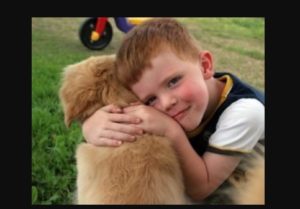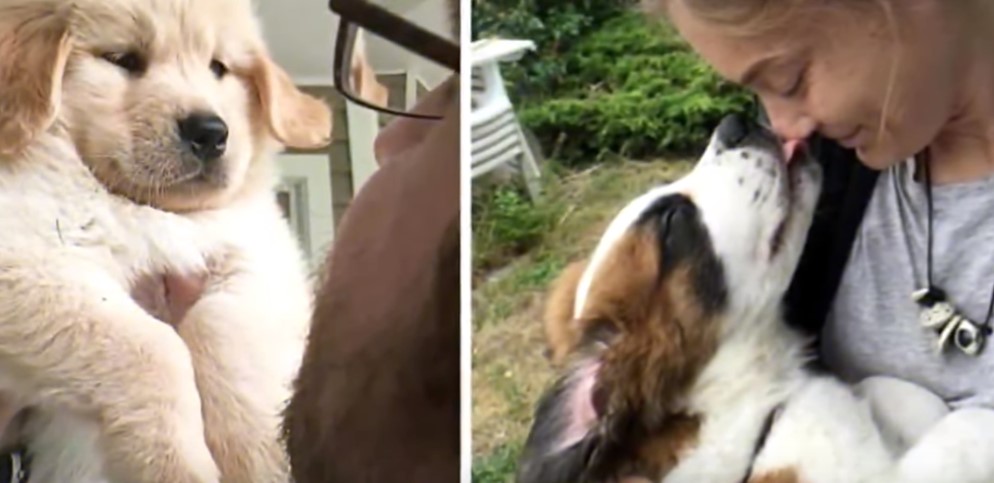Imagine a scenario where a human and a pooch stood one next to the other and both required assistance, yet you could just pick one. It wouldn’t be a simple choice, would it?

A few investigations uncover with regards to feeling sympathy, numerous individuals pick pooches over others. Does that unexpected you?

Sociologists and anthropologists from Northeastern University and the University of Colorado contemplated why, when reports of creatures in need stand out as truly newsworthy, the shock and reaction level is now and then higher than when disasters sway humans.

The scientists requested that 256 understudies read an invented news report, and uncover their degrees of compassion for a ruthlessly beaten grown-up or youngster versus a grown-up pooch or doggie.

The outcomes: The students felt more sympathy toward the pooches than the grown-up human. The examination says, “We likewise discovered more compassion for unfortunate casualties who are human kids, little dogs, and completely developed mutts than for exploited people who are grown-up people. Age has any kind of effect for sympathy toward human exploited people, yet not for hound victims.

“The study additionally makes reference to a British philanthropy which likewise led its own canine versus-individual compassion explore. It ran a raising money battle highlighting two adaptations of a similar advertisement.

As per the examination, “Both contained content that read, ‘Would you offer £5 to spare Harrison from a moderate, excruciating demise?’ One variant highlighted an image of the genuine Harrison Smith, an eight-year-old kid determined to have Duchenne (Muscular Dystrophy). The other included a stock photograph of a dog.

When the advertisements ran on MSN’s United Kingdom site with connections to give to the philanthropy, the one delineating the canine pulled in twice the same number of snaps as the one with the kid (230, contrasted with 111).” Why might individuals pick pooches over individuals?

The examination pontificates: “It might be that numerous individuals assess hounds as defenseless, paying little respect to their age, when contrasted with grown-up people. At the end of the day, hounds, regardless of whether youthful or grown-up, are viewed as having a considerable lot of similar characteristics related with human children; they are viewed as unfit to completely ensure themselves, contrasted with grown-up humans.”Psychotherapist Justin Lioi concurs.

“We are progressively ready to identify with somebody whom we regard to have minimal fault for their conditions,” Lioi disclosed to I Love My Dog. “Pooches and children are the meaning of didn’t-request this and we are bound to hurry to help them.” Dr. Kathrine McAleese, a humanist and fundamental psychotherapist, has customers who work widely with hounds.

She said she sees this marvel normally. “Individuals who fit this present investigation’s results will frequently see creatures as blameless people and people as not having a similar virtue,” McAleese revealed to I Love My Dog. “At the point when I ask them for what valid reason they will burn through cash on their pooch’s wellbeing, wellness, sustenance, yet not on themselves, the mind-boggling answer I get is ‘on the grounds that my canine merits it.’

“McAleese includes hound coaches have revealed to her how they battle to have persistence or compassion for the proprietor, yet have unending tolerance for the canine. “Why? The canine can’t support itself, so they are the pooch’s supporter,” she said. The examination results didn’t astound confirmed behaviorist and creature coach, Russell Hartstein either. He disclosed to I Love My Dog: “Mutts give unqualified love and commonly individuals structure more grounded bonds with their pet than with another human.

“Hartstein said huge numbers of his customers take such great consideration of their pets, that it’s like how some consideration for their youngsters.“From going to school for behavior and training, health, nutrition, wellness, enrichment and play, people form very close intimate bonds with their best friends.” What do you think of the study? We’d love to hear from you! Leave your comments below and let us know!
